This ornate and entirely handcrafted saber from India with its damascus blade and koftgari-inlay embellishment is in itself a display of the traditional swordsmithing arts of India. The damascus steel blade features panels of silver inlay on both sides of the blade. The blade tang is secured by filling the hollow hilt and grip with a hardened resin to solidly anchor it into the hilt. This method of sword construction is a traditional technique in India.
The sword is paired with a wood-core scabbard overlaid in vibrant velvet. Its steel components were decorated with silver koftgari to match the sword. The Damascus steel blade is crafted from the melding of two different steels into a single billet from which the smith forges the blade; the mixed steel leaves a vibrantly visible rippled patterning on the blade surface. Traditionally this was a technique done to merge harder and softer steels into a single blade to impart it with both a hardness for durability and edge retention and a degree of flexibility to prevent the blade from becoming brittle.
This was done to get good results from the quality of iron available for smithing. Damascus is now technically inferior to pure steel made from modern industrial-scale methods, but it is still desired as the beauty of Damascus is instantly notable and is a testament to the skill of the smith who forged it with the traditional methods and the blade was further embellished with silver inlay at the base of the blade. The elegant and intricate design and patterning on the hilt was created with the laborious Koftgari technique; a traditional process exemplified by Indian smiths whereby a design is etched and chiseled and then strands of silver wire is carefully hammered into the etched design. The hilt is then heated in a kiln and the silver wire is then permanently annealed into a permanent design.
The patterning of the damascus blade varies with each blade in much the same manner as all fingerprints differ. Also the Koftgari designs are made to the individual design and artistry of the smith. Therefore every one of the swords of this type are uniquely crafted and are a testament to the traditional swordsmithing techniques of India.
Please Note: Unique Item – Only One Available!


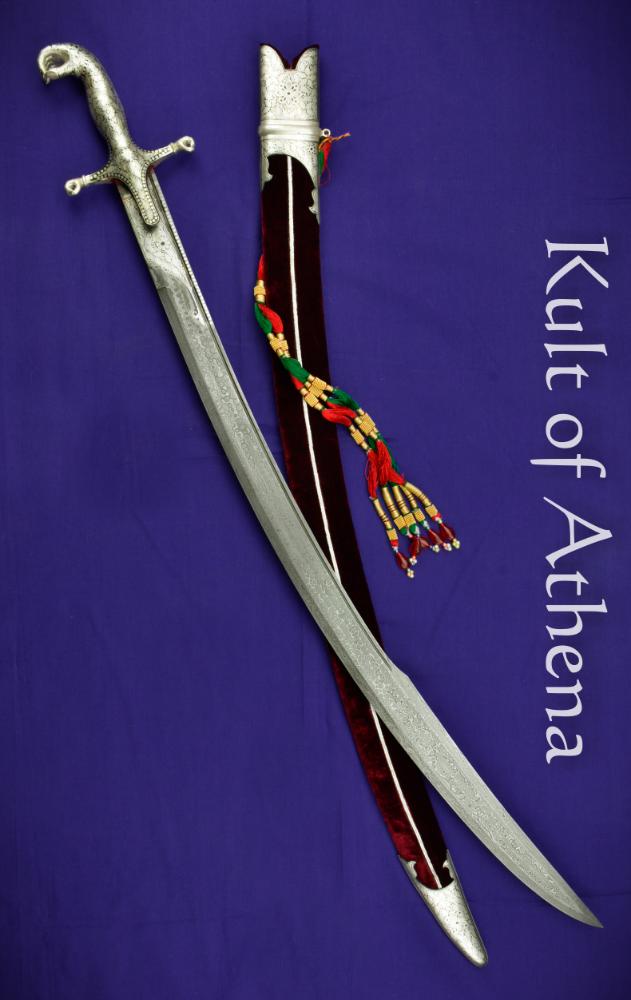

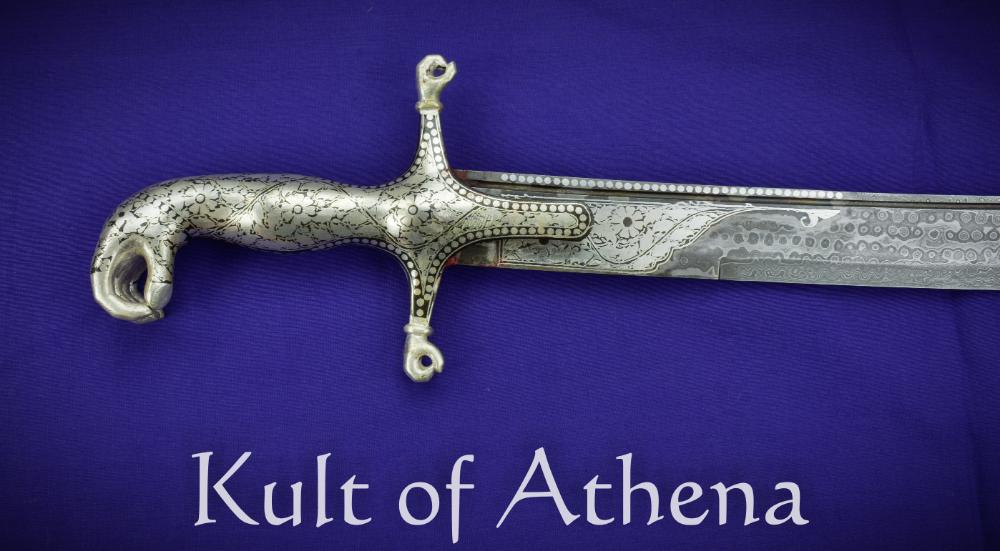



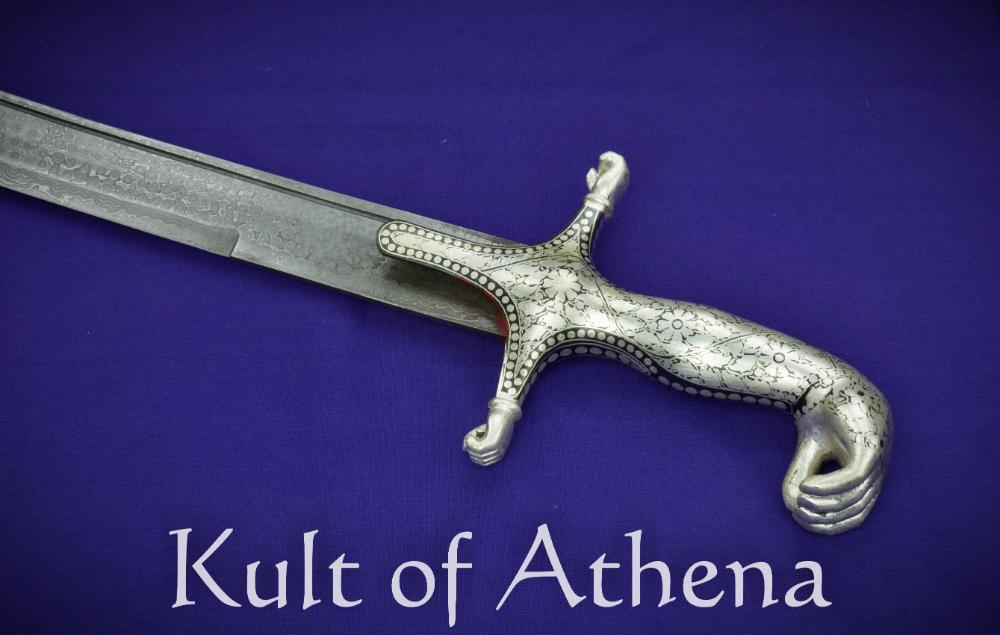


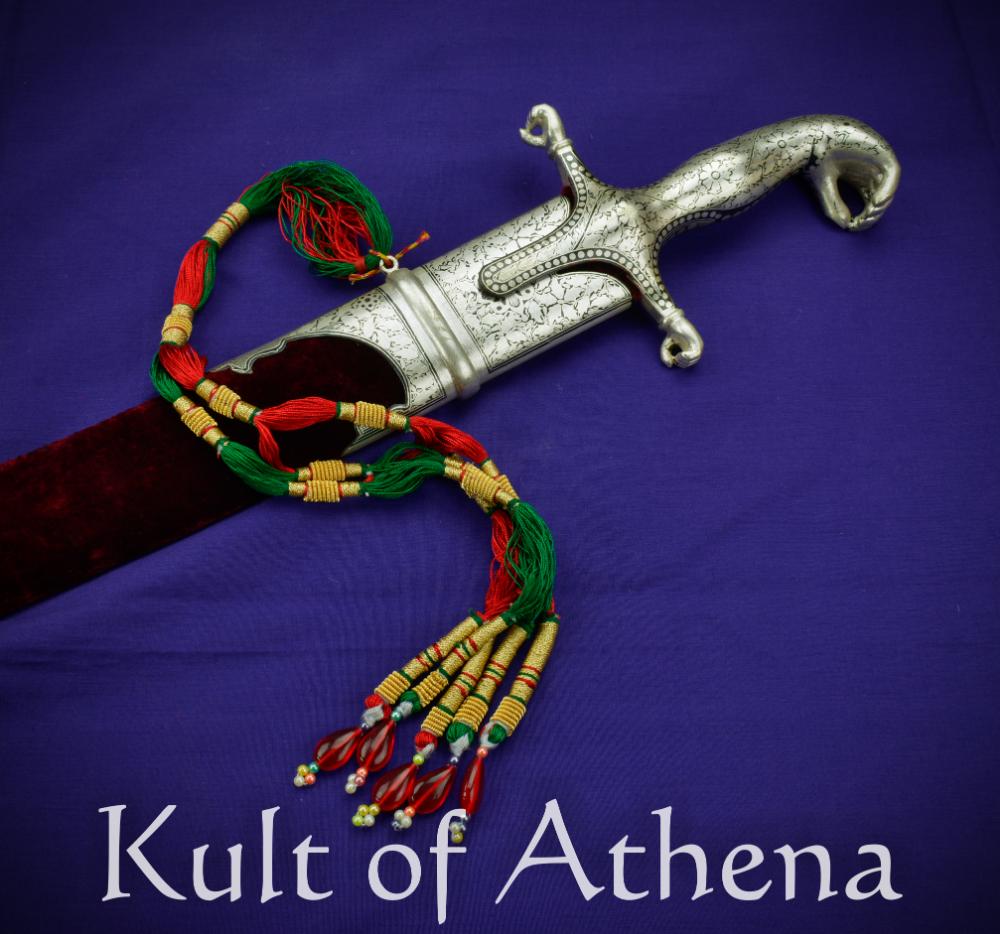
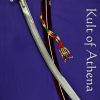


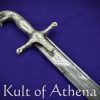
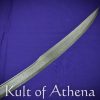
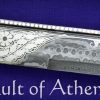

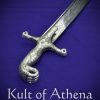

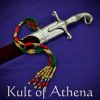
Reviews
There are no reviews yet.